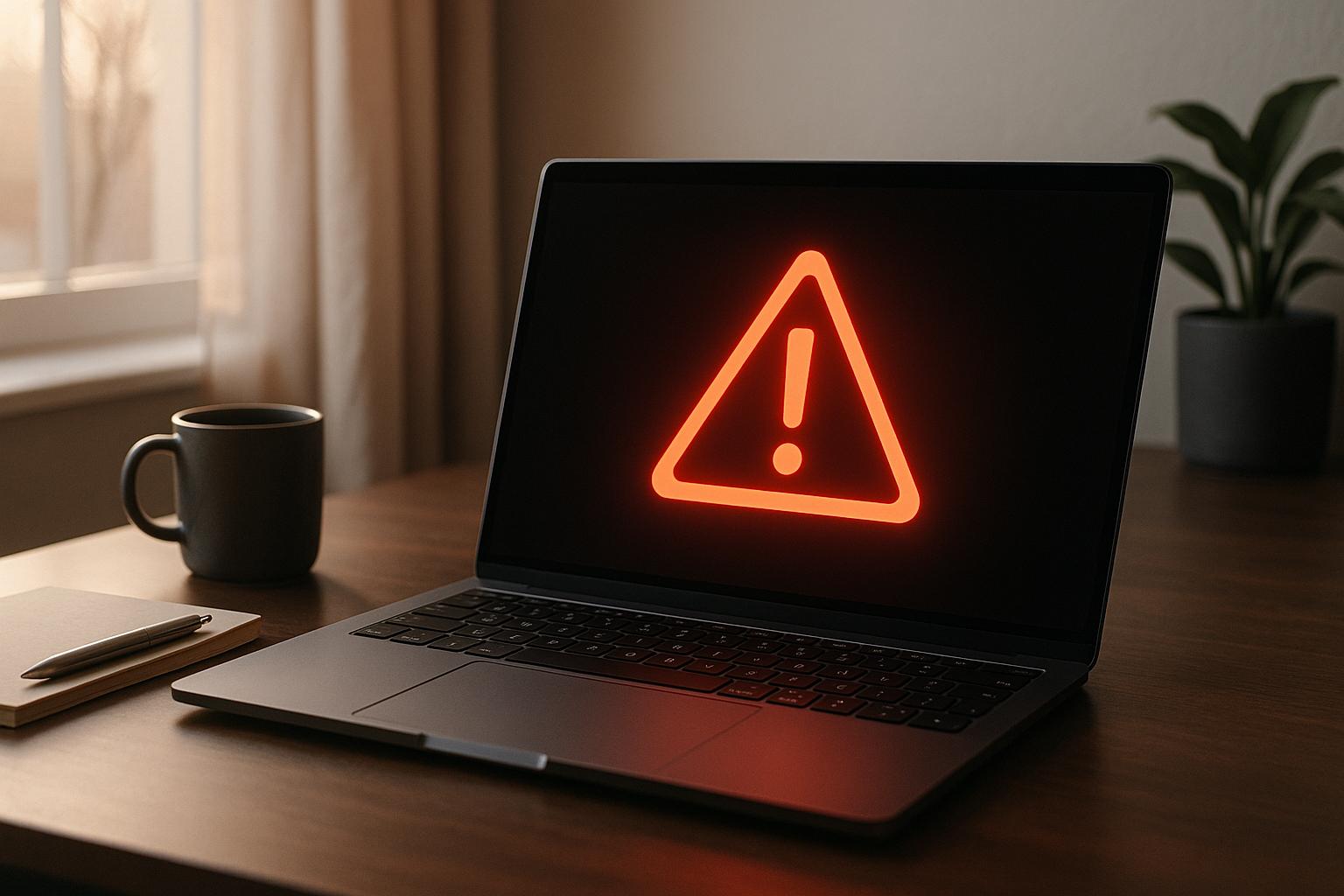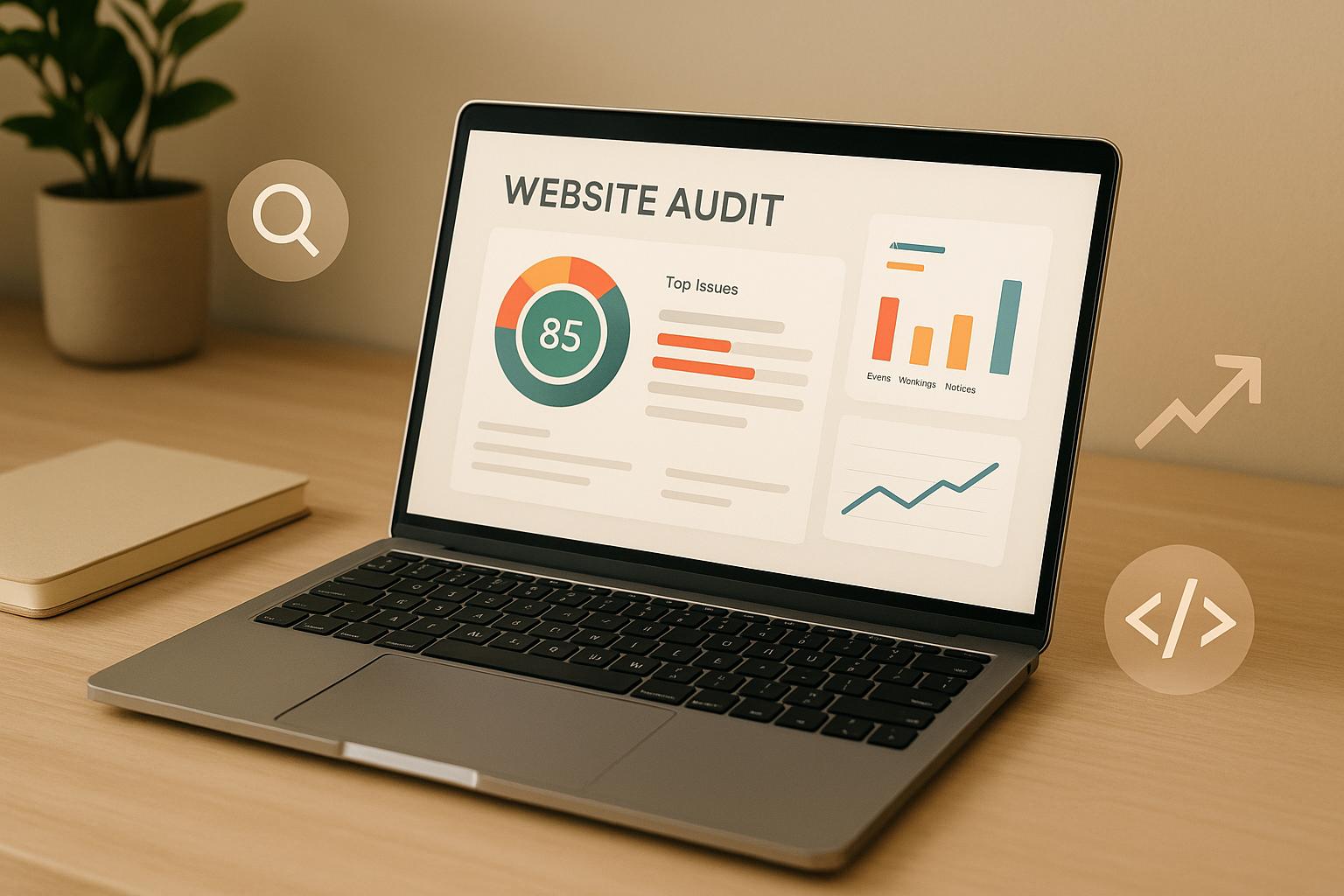SEO penalties can devastate iGaming sites by cutting traffic, revenue, and trust. Here’s why they happen and how to avoid them:
- Keyword Stuffing: Overloading pages with repetitive keywords violates Google’s policies and hurts user experience.
- Duplicate Content: Syndicated or reused content without proper tags confuses search engines and lowers rankings.
- Poor Backlinks: Buying links or using spammy link networks triggers penalties under Google’s strict guidelines.
- Non-Compliance: Targeting restricted audiences, misleading claims, or ignoring state-specific regulations leads to penalties.
- Manual vs. Algorithmic Penalties: Manual penalties are issued by human reviewers, while algorithmic penalties are automatic and harder to detect.
Key Takeaways:
- Avoid over-optimization and prioritize user-friendly, original content.
- Regularly audit backlinks to remove harmful links and disavow spammy ones.
- Stay updated on Google’s guidelines and gambling regulations to maintain compliance.
- Use tools like Google Search Console to monitor performance and catch issues early.
Preventing penalties is easier than recovering from them. Focus on quality content, clean backlinks, and compliance to secure your site’s visibility and revenue.
Ep 523: Manual vs Algorithmic: Cracking Google’s SEO Code in iGaming
Common SEO Mistakes That Cause Penalties
The iGaming industry faces specific SEO challenges, and mistakes here can lead to penalties that are both costly and damaging. Considering that over 53% of iGaming traffic comes from organic search – accounting for more than $53 billion in revenue – avoiding these pitfalls is critical to maintaining visibility and profitability.
Keyword Stuffing and Over-Optimization
Keyword stuffing is one of the most harmful SEO practices in the iGaming sector. This involves cramming pages with keywords in an attempt to boost rankings. Operators often overuse high-value terms, which can backfire.
This issue shows up in two main ways: visible repetition of keywords within content and hidden placement in code or meta tags. Both approaches violate Google’s spam policies and degrade the user experience.
"Keyword stuffing is actual spam and tends to be repeating a term in non-sensical patterns over and over. Not always, but people also shouldn’t be paranoid that if they use a term # times then they’ve tipped over into keyword stuffing. It doesn’t really work that way. Instead, it just tends to be not helpful writing." – Danny Sullivan, Google’s Search Liaison
A good rule of thumb is to aim for a keyword density between 2–5%. However, instead of obsessing over numbers, focus on creating natural, engaging content. Use synonyms, long-tail keywords, and related terms to provide context without falling into over-optimization.
Another common issue to watch out for is duplicate content.
Duplicate Content and Content Syndication
Duplicate content is a significant concern for iGaming sites, especially when syndicated or reused material lacks proper canonical tags. For instance, when multiple sites publish identical reviews, bonus descriptions, or promotional content without indicating the original source, search engines may struggle to determine which version to rank. This confusion can hurt your site’s visibility.
The solution? Develop original, tailored content that addresses the specific needs of your audience. Not only does this help you avoid penalties, but it also builds trust with players – an essential factor in an industry where reliability matters.
Poor Backlink Practices
Backlink manipulation is another risky area, particularly as Google’s detection methods become more advanced. For gambling-related content, Google enforces strict guidelines. Its machine learning models now catch 99% of spam content, flagging around 40 billion spam pages daily. Poor backlink strategies can lead to sharp declines in traffic.
Some of the riskiest practices include buying links, using Private Blog Networks (PBNs), or excessive reciprocal linking. Google’s Penguin algorithm is designed to detect and penalize unnatural link patterns, and the consequences can be severe, with major players experiencing substantial traffic losses.
"Google has detected a pattern of unnatural artificial, deceptive, or manipulative links pointing to pages on this site. These may be the result of buying links that pass PageRank or participating in link schemes." – Google
To recover from backlink-related penalties, swift action is essential. This includes removing spammy backlinks and using Google’s disavow tool for links that cannot be removed manually.
Beyond backlinks, failing to comply with Google’s broader guidelines can lead to even more significant issues.
Non-Compliance with Google’s Guidelines
Google’s webmaster guidelines are especially strict for iGaming content due to the regulated nature of online gambling. Non-compliance can lead to search penalties and even legal troubles, especially in states with specific restrictions.
Common mistakes include targeting restricted audiences without proper age verification or operating in regions where gambling services are prohibited. Additionally, using banned phrases or misleading claims can result in manual penalties. Google’s reviewers pay close attention to iGaming content, making adherence to these rules non-negotiable.
"The safest way to grow is to earn your rankings, not manipulate them." – Matt Cutts, Former Head of Webspam at Google
Staying compliant requires ongoing monitoring of Google’s guidelines and state-specific regulations. Regular audits and timely updates are essential to maintaining search rankings and avoiding penalties.
How SEO Penalties Impact iGaming Sites
Grasping the effects of SEO penalties is pivotal for iGaming operators, especially given the challenges already discussed. Penalties often stem from practices like keyword stuffing or poor-quality backlinks, and their consequences can be severe. With Google driving over 175 billion visits each month, maintaining search visibility is vital in this fiercely competitive industry.
When penalties hit, the fallout is immediate and far-reaching. Rankings plummet, traffic dwindles, and revenue takes a nosedive. For operators working with slim profit margins, this kind of disruption can threaten their very survival. In many cases, penalties either drastically lower rankings or remove pages from search results altogether, and recovering from such setbacks can take months.
The damage doesn’t end there. In an industry already battling skepticism – where players worry about fraud, rigged games, or delayed payouts – SEO penalties can tarnish an operator’s reputation even further. This loss of trust has a ripple effect: fewer players engage, user acquisition becomes harder, and retention rates drop. Without trust, bounce rates climb, and overall engagement suffers. To put things into perspective, fraud in the iGaming sector is increasing by 30% annually, with promo abuse alone accounting for up to 15% of revenue loss. Additionally, for every $100 in chargebacks, operators face $207 in total costs when fees and refunds are factored in. SEO penalties, on top of these challenges, can push businesses to the brink of financial collapse.
Manual vs. Algorithmic Penalties Comparison
Understanding the difference between manual and algorithmic penalties is essential for iGaming operators, as each requires distinct recovery strategies and has varying impacts on business operations.
| Aspect | Manual Penalties | Algorithmic Penalties |
|---|---|---|
| Cause | Direct violations of Google’s Webmaster Guidelines | Failure to meet Google’s quality standards, often due to algorithm updates |
| Detection | Identified by a human reviewer | Automatically triggered by algorithm updates |
| Notification | Website owner notified via Google Search Console | No direct notification; ranking drops must be observed |
| Impact Severity | Ranges from slight demotion to complete removal from search results | Typically results in ranking and traffic drops |
| Recovery Process | Requires fixing violations and submitting a reconsideration request | Involves improving overall SEO and content quality |
| Recovery Timeline | Can be quicker once violations are addressed and reviewed | Often longer, as changes need to align with algorithm updates |
Manual penalties are particularly severe, as they can lead to a complete removal from search results. Google notifies site owners through Google Search Console, making these penalties easier to detect. However, recovery involves identifying and addressing specific violations, followed by submitting a formal reconsideration request.
Algorithmic penalties, on the other hand, are less direct. They often result from failing to meet evolving quality standards, triggered by Google’s frequent algorithm updates – up to 3,000 in a single year, as reported in 2018. These penalties can be harder to pinpoint since no notification is provided, requiring site owners to continuously monitor their rankings and traffic. Addressing algorithmic penalties demands broader improvements in SEO and content practices, ensuring alignment with Google’s evolving benchmarks.
The recovery process for each type of penalty is distinct. Manual penalties require targeted fixes and a formal appeal, while algorithmic penalties necessitate ongoing efforts to enhance overall site quality. For iGaming operators, consistent monitoring through Google Search Console and regular SEO audits are critical.
Ultimately, both penalty types reflect Google’s commitment to delivering high-quality search results. For iGaming sites operating in a tightly regulated space, understanding these nuances is key to bouncing back quickly and safeguarding revenue streams.
sbb-itb-9f85f22
Solutions and Recovery Methods for Long-Term SEO
When your iGaming site’s SEO takes a hit from penalties, it’s not just about fixing the immediate issues. Recovery involves addressing the root causes and building a solid framework that can endure algorithm updates and regulatory shifts.
"Recovering from an SEO penalty is like rebuilding trust – you have to start with a clean slate." – Komron Rahmonbek, SEO Manager, StrongDM
Technical and Content Audits
Recovery starts with a thorough audit. First, determine the type of penalty – manual or algorithmic – as that shapes your approach. Manual penalties often involve specific violations, while algorithmic penalties require a broader focus on improving overall quality.
Begin by inventorying your site’s elements – URLs, images, videos, scripts, and sitemaps – to spot potential issues. Evaluate the quality of your content by checking for originality, readability, proper formatting, and user value. For iGaming sites, this means closely reviewing game descriptions, bonus terms, and promotional material to ensure they are clear and unique. If keyword stuffing is present, rework the content to integrate keywords naturally.
On the technical side, ensure crawlability, fix error codes, and verify that structured data meets current standards. Internal linking should be intuitive and user-friendly to enhance navigation. Improving user experience through better readability and streamlined navigation is equally important.
Take inspiration from an Amazon seller SaaS company that successfully recovered during the August–November 2023 algorithm updates. Their approach involved identifying underperforming pages, analyzing keywords, benchmarking competitors, and creating fresh content aligned with Google’s Helpful Content Guidelines. This strategy led to a full recovery in site performance.
Once technical and content issues are resolved, shift your focus to backlinks.
Backlink Profile Cleanup
Toxic backlinks are a common cause of penalties for iGaming sites. Start by conducting a detailed backlink analysis, categorizing links as either "good" or "toxic" based on their source quality, relevance, and adherence to guidelines.
Compile a list of harmful backlinks and use Google’s Disavow Tool to neutralize them. To rebuild your profile, prioritize earning links from credible sources such as gambling industry publications, responsible gaming organizations, and reputable business directories. Avoid risky tactics like buying links or participating in link exchange schemes.
A long-term, sustainable link-building strategy aligned with Google’s quality standards is essential for maintaining SEO health.
Compliance and Monitoring
Preventing future penalties requires ongoing compliance. Regularly update your SEO practices to align with Google’s frequent algorithm changes. Stay informed about updates by visiting the Google Ads Policy Center, subscribing to notifications, and following industry blogs on gambling regulations. Google’s 2025 updates, for instance, include stricter content rules and mandatory responsible gaming disclosures.
For iGaming operators running Google Ads, proper certification is critical. Each application is site-specific and often country-specific, requiring separate certifications for different markets. Ensure all promotional content clearly displays licensing information and responsible gaming disclaimers.
Regular staff training is another key component. Keep your team updated on Google’s guidelines and iGaming-specific requirements. Consulting services, like those offered by Emilio Takas SEO Consulting, can provide targeted expertise in these areas.
"Penalties can be a wake-up call – they force you to rethink your strategy and build a stronger foundation for your site." – Will Wright, Lead SEO Strategist, Direct Online Marketing
Establish a routine audit schedule: monthly for critical areas like content quality and backlinks, and quarterly for comprehensive technical reviews. Use tools like Google Analytics to monitor performance metrics and catch potential issues early. Keep an eye on competitor strategies to stay competitive while maintaining compliance.
It’s worth noting that repeated violations can lead to severe consequences, including permanent bans. For example, social casino games policy violations can result in immediate account suspension without warning. For iGaming operators, proactive compliance monitoring isn’t optional – it’s critical to long-term success.
Conclusion
Organic traffic plays a crucial role in the iGaming market, so an SEO penalty can severely impact both revenue and market position.
To avoid these setbacks, proactive SEO management is essential. In such a competitive industry, losing search rankings means losing high-value players. Organic traffic driven by SEO often converts into active players at better rates than general display ads.
Regular compliance checks and monitoring can help you avoid costly issues. Conducting frequent SEO audits allows you to stay ahead of potential problems, ensuring your key pages remain indexable, structured data is properly implemented, and Core Web Vitals meet Google’s technical standards.
Your backlink strategy also demands careful attention. Avoid links from sites with less than 500 monthly visitors, and prioritize those from relevant and authoritative sources. While Google has become better at ignoring spammy links, maintaining a clean backlink profile is key to protecting your rankings over the long term.
As highlighted earlier, creating strong and compliant content is your best defense against penalties. Focus on producing content that demonstrates expertise, builds authority, and reflects integrity. Stay away from keyword stuffing and instead aim to deliver meaningful value to users looking for gaming-related information.
"The safest way to grow is to earn your rankings, not manipulate them." – Matt Cutts, Former Head of Webspam at Google
Keeping up with algorithm updates and industry trends is equally important. With the expected 2025 shift toward user intent and interactive content, adapting your strategies will be critical.
While recovering from penalties is possible, preventing them is far more cost-efficient. By committing to thorough technical audits, improving your content, and maintaining compliance, you can establish a strong SEO foundation. This approach will help you navigate algorithm changes and regulatory shifts, securing long-term success in the dynamic U.S. iGaming market.
FAQs
How can iGaming websites audit their backlinks to avoid SEO penalties?
To steer clear of SEO penalties, iGaming websites should make it a habit to audit their backlinks regularly. Start by compiling a thorough list of all inbound links using tools like Google Search Console or other SEO software. Once you’ve got the list, carefully assess each link for quality, relevance, and potential risks. Pay special attention to low-quality or spammy links that might drag down your rankings.
If you come across harmful links, you can use the disavow tool in Google Search Console to reduce their impact. Staying on top of backlink monitoring and taking a proactive approach to managing them is key to keeping your SEO profile strong and penalty-free, which is essential for maintaining a solid position in search results over time.
How can iGaming websites create original content to avoid duplicate content penalties?
To steer clear of duplicate content penalties, iGaming websites need to prioritize original and engaging content that genuinely benefits their audience. This could mean writing detailed, one-of-a-kind game reviews, creating personalized blog posts, or developing promotional material that showcases your brand’s unique voice and expertise.
Steer away from copying content from competitors or relying on generic templates. Instead, focus on updating your existing pages with new perspectives and ensure all content speaks directly to your audience’s needs. By emphasizing originality and relevance, you’ll align with search engine guidelines while boosting your site’s SEO performance.
How can iGaming operators follow Google’s guidelines and comply with state gambling laws in the U.S.?
iGaming operators can maintain compliance with Google’s guidelines and U.S. state gambling laws by focusing on responsible gambling practices and following local regulations. Key steps include avoiding ads that target minors, adhering to state-specific restrictions, and ensuring all marketing efforts align with Google’s advertising policies.
To meet state requirements, operators should implement geo-targeting tools like GPS and IP tracking to limit access to authorized regions. Staying on top of changes in state laws and conducting regular legal reviews are also critical. By staying proactive and keeping in line with both federal and state regulations, operators can build trust and ensure long-term success in the industry.




